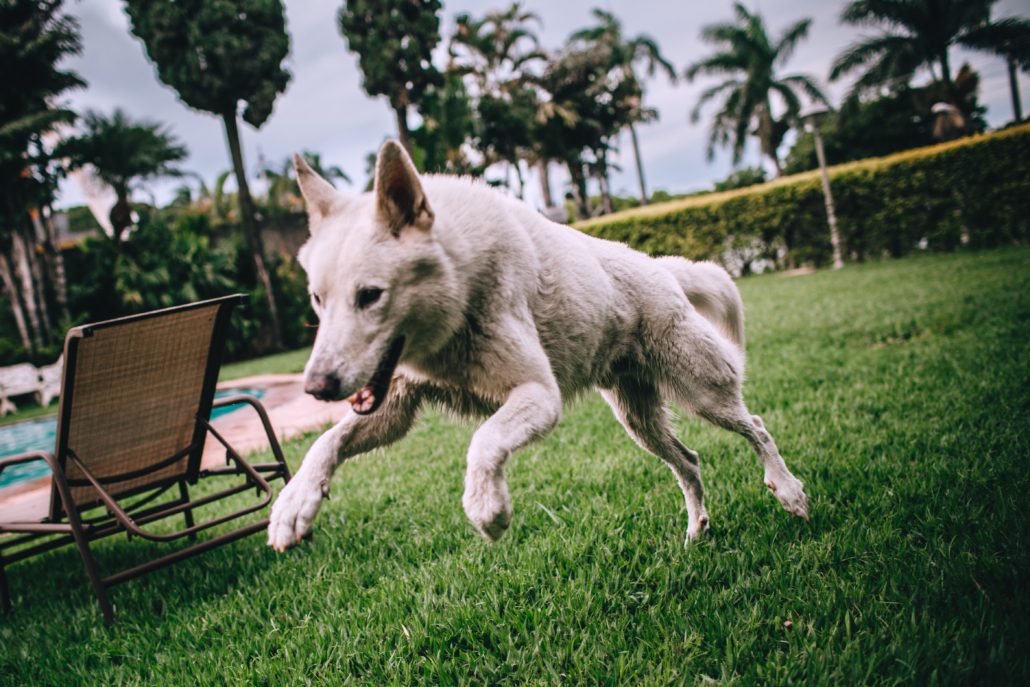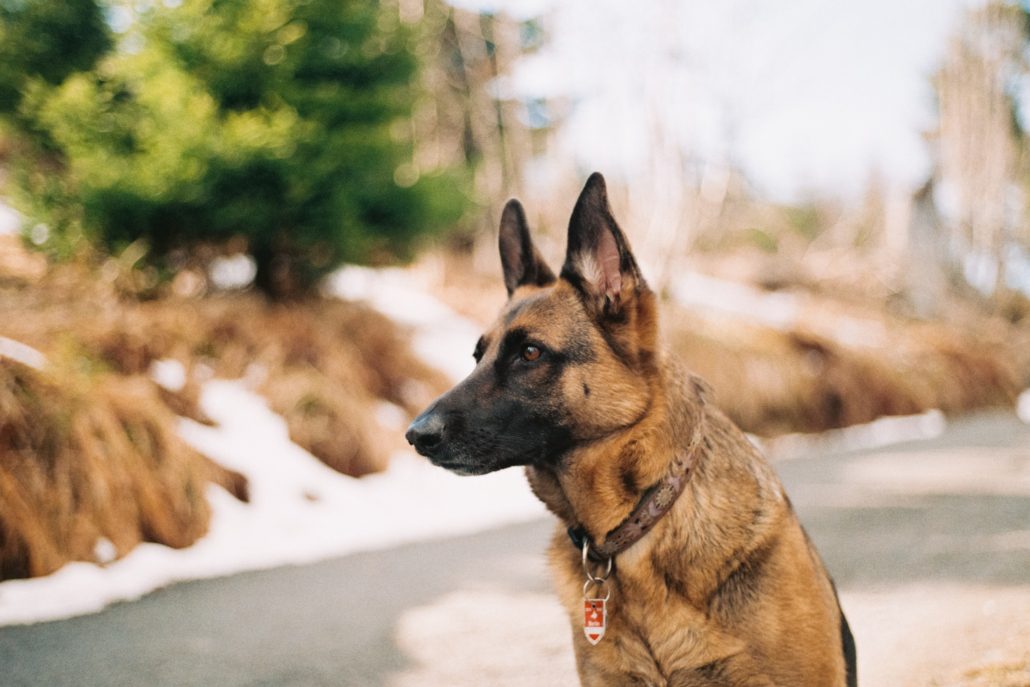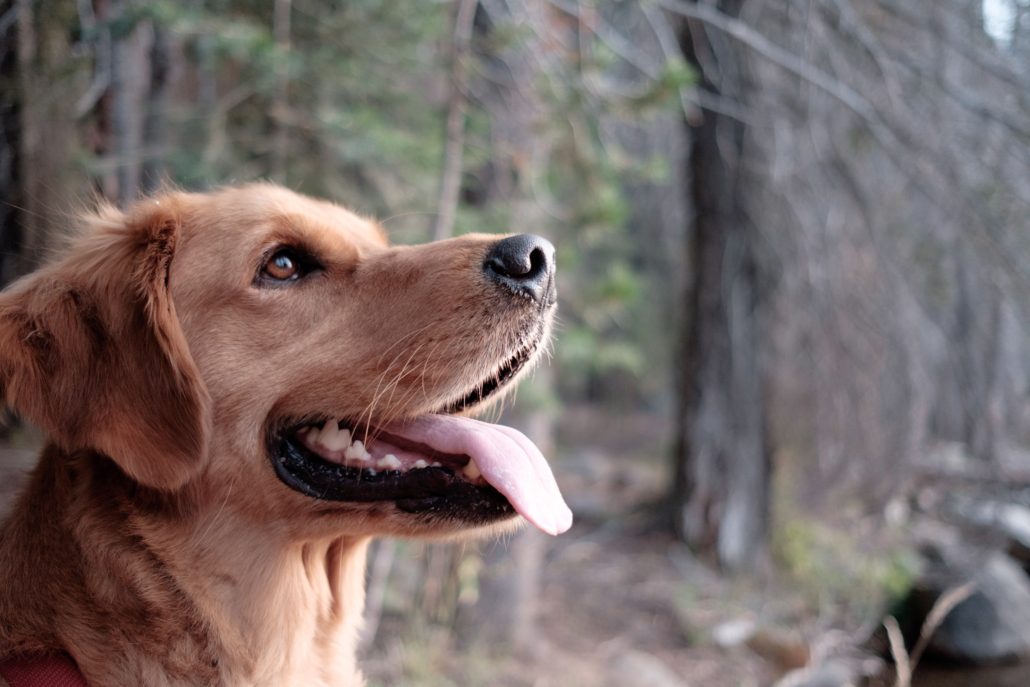CBD Oil for Dogs with Arthritis
Arthritis is one of the most common conditions dogs can develop. In fact, one in four dogs will be diagnosed with this painful, degenerative joint condition at some time in their lives. And up to 60% show signs of pain, decreased flexibility, and joint structure alterations indicating joint issues. 1 Fortunately, CBD oil for dogs with arthritis is now being researched to help give our beloved pets relief.

What Is Arthritis in Dogs?
Arthritis, short for osteoarthritis, is a degenerative joint disease caused by progressive inflammation. This leads to the breakdown of cartilage, bone, and other changes, which cause pain and stiffness in the joints. The lack of hydration and fluids in the joints, combined with the inflammation, can decrease flexibility and lead to severe pain.
Dogs tend to suffer from arthritis more than many other mammals due to their genetic predisposition combined with high activity levels—especially if they run or jump a lot, which may also lead to injury. 1 It’s even more common in large dog breeds like German Shepherds, Labrador Retrievers, Siberian Huskies, and Rottweilers. The ball and socket joints, such as the hip and shoulders, and hinge joints, like the elbow, are the most commonly affected joints in dogs.
How Do You Know If Your Dog Has Arthritis?
Common signs of arthritis include your dog showing signs of pain, like whining, aggression or irritability (such as growling or biting), or trying to move away during physical examinations. They may also appear stiff or in pain with running, walking, jumping, or getting up from a lying or seated position. You may also notice a decreased range of motion in certain joints. If so, you’ll want to visit your vet to see if they show signs of joint inflammation or if the cartilage between the bones is breaking down.
In addition to a physical exam, vets also use x-rays, bloodwork, imaging tests, gait analysis, and other tools for a correct diagnosis. Once you have a proper diagnosis, you can more appropriately treat your dog.
Common Treatments for Dogs with Arthritis
If you find your dog is struggling with pain and stiffness due to arthritis, there are options to help them feel better. Conventional treatments include:
- Non-steroidal Anti-Inflammatory Agents (NSAIDs), such as aspirin, Rimadyl™, Deramaxx™, Etogesic™, Metacam™, Zubrin™, and Previcox™.
- Corticosteroids
Unfortunately, though widely used, these types of conventional pharmaceutical therapies have a high risk of toxicity and adverse side effects. Some of the most alarming include ulceration, vomiting, anorexia, and abdominal pain from NSAIDs. They also don’t address the underlying causes and can even decrease the production of collagen, which can lead to further cartilage degradation over time.
Corticosteroids, which can effectively treat pain and inflammation, also can come with unpleasant side effects, such as suppressing the immune system, weight gain, bone loss, increased risk of diabetes, cataracts, insomnia, fluid retention, ulcers, and more. They are only meant for short-term use (no more than three to four months) before ensuring the organs continue to function well.
Other more experimental options include:
- Insulin Growth Factor-I
- Doxycycline
- Sodium Pentosan Polysulfate
However, there isn’t much research on these options to determine how effective they are and how significant the side effects are.
In addition to the more conventional treatments, some pet parents have seen great results with alternative treatments, like:
- Regular, low-impact exercise, such as walking, swimming, or underwater treadmill therapy (if available)
- Physical therapy
- Acupuncture
- Stem cell therapy
- Diet plans to promote weight loss (if overweight) as well as provide enough protein and not too much fat
In addition to medications, there are numerous nutraceutical supplements available to help support a dog with arthritis. Some of these food- or plant-based supplements include:
- Glucosamine
- Chondroitin sulfate
- Omega-3 fatty acids, as found in salmon, other seafood, and fish oil
- And, of course, CBD oils.

CBD for Dogs with Arthritis
CBD oils are the fastest-growing health supplement for pets. It’s a type of cannabinoid that’s derived from the cannabis plant. However, unlike its cousin, THC, CBD is not psychoactive. Because it is made from hemp, it contains negligible levels of THC, so it doesn’t cause a dog to feel high or stoned. Instead, CBD follows similar metabolic pathways as NSAIDS to help ease inflammation.
Research has confirmed that CBD can help dogs with arthritis relieve pain and improve activity levels when given twice daily. 2 Better yet, unlike some of the other options previously mentioned, CBD oil was well tolerated by the dogs, and owners reported no or minimal side effects. 3
In addition to the research on CBD for dogs with arthritis, CBD has also been shown to help reduce chronic inflammation and improve other mobility issues. 4,5 Other animal research has found CBD oils helped prevent the progression of arthritis. 6
Some pet owners have also found that CBD oil is a complementary treatment that can be used with other medications to allow them to decrease the dosage while enhancing the level of pain control. 7 However, before combining CBD oil with other medications or supplements, it’s best to work with your vet, as CBD may interfere with the metabolism of other treatments.

Is CBD Oil for Dogs with Arthritis Right for Your Dog?
Sadly, there is no cure for arthritis. It’s a progressive degenerative disease. Fortunately, there are potential treatments to help slow the progression and help relieve the pain, inflammation, and suffering of those affected. This can help a dog feel more comfortable and enjoy a more active lifestyle.
CBD appears to be safe, has few side effects, and is legal for dogs in most states. And with so many dogs suffering from joint pain and mobility issues, especially as they get older, CBD oils are another potential tool, especially when combined with:
- Regular low-impact exercise
- Therapies to help maintain range of motion and strength
- Maintaining a healthy weight
- And supplementing with omega-3 fatty acids.
Ready to see how the best CBD for dogs with arthritis—ABSC Organics—can help your pet live a more vibrant, healthy life? Get started here.
Related Information:
- CBD Oil for Small Dogs
- CBD Oil for Medium Pets
- CBD Oil for Large Dogs
- CBD Oil for Dogs
- CBD FAQs for Pets
- Pure CBD Oil Dosage for Dogs
References:
1. Bland SD. Canine osteoarthritis and treatments: a review. Veterinary Science Development. 2015 Jul 17;5(2). https://www.researchgate.net/publication/281442944_Canine_Osteoarthritis_and_Treatments_A_Review
2. Gamble LJ, Boesch JM, Frye CW, Schwark WS, Mann S, Wolfe L, Brown H, Berthelsen ES, Wakshlag JJ. Pharmacokinetics, safety, and clinical efficacy of cannabidiol treatment in osteoarthritic dogs. Frontiers in Veterinary Science. 2018:165. https://pubmed.ncbi.nlm.nih.gov/30083539/
3. Vaughn DM, Paulionis LJ, Kulpa JE. Randomized, placebo-controlled, 28-day safety and pharmacokinetics evaluation of repeated oral cannabidiol administration in healthy dogs. American Journal of Veterinary Research. 2021 May 1;82(5):405-16. https://pubmed.ncbi.nlm.nih.gov/33904801/
4. Burns TL, Ineck JR. Cannabinoid analgesia as a potential new therapeutic option in the treatment of chronic pain. Annals of Pharmacotherapy. 2006 Feb;40(2):251-60. https://journals.sagepub.com/doi/abs/10.1345/aph.1g217
5. Philpott HT, O’Brien M, McDougall JJ. Attenuation of early phase inflammation by cannabidiol prevents pain and nerve damage in rat osteoarthritis. Pain. 2017 Dec;158(12):2442. https://www.ncbi.nlm.nih.gov/pmc/articles/PMC5690292/
6. Malfait AM, Gallily R, Sumariwalla PF, Malik AS, Andreakos E, Mechoulam R, Feldmann M. The nonpsychoactive cannabis constituent cannabidiol is an oral anti-arthritic therapeutic in murine collagen-induced arthritis. Proceedings of the National Academy of Sciences. 2000 Aug 15;97(17):9561-6. https://www.pnas.org/doi/abs/10.1073/pnas.160105897
7. Vanegas H, Vazquez E, Tortorici V. NSAIDs, opioids, cannabinoids and the control of pain by the central nervous system. Pharmaceuticals. 2010 Apr 29;3(5):1335-47. https://www.ncbi.nlm.nih.gov/pmc/articles/PMC4033984/

















